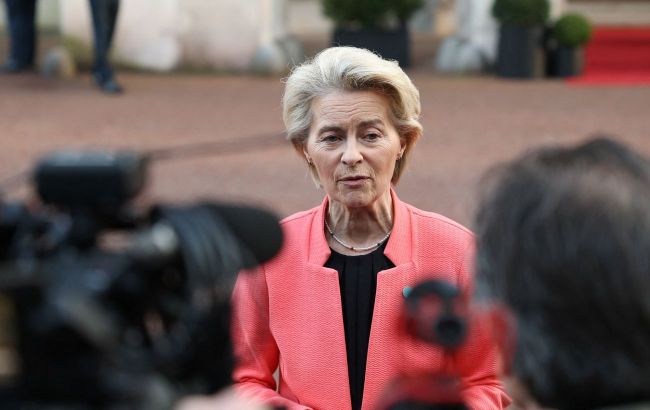European Parliament prepares for two votes of no confidence in Ursula von der Leyen
 Photo: European Commission President Ursula von der Leyen (Getty Images)
Photo: European Commission President Ursula von der Leyen (Getty Images)
The European Parliament has scheduled votes on two votes of no confidence in European Commission President Ursula von der Leyen. The sessions will take place from October 6 to 9, Politico reports.
Two political groups, the far-right Patriots for Europe and the Left, submitted separate motions of no confidence in the Commission President at midnight on September 10.
It is noted that the groups acted as soon as it became possible under parliamentary rules. These steps were taken only a few hours after von der Leyen delivered her State of the Union address in the Strasbourg Parliament.
The Patriots accuse von der Leyen of a lack of transparency and accountability and sharply criticize trade agreements with South America and the United States.
The Left also criticizes the Commission’s trade policy but places greater emphasis on the "inaction by the EU executive amid Israel’s war in Gaza."
The simultaneous submission of two motions of no confidence is unprecedented and has sparked discussion in the European Parliament about how two debates and two votes will be organized.
According to sources, the votes on the motions of no confidence in the Commission President will take place from October 6 to 9.
In July of this year, the European Parliament rejected a motion of no confidence in the Commission President. The decision was supported by 360 MEPs, while 175 voted against von der Leyen, and 18 abstained.
To pass a motion of no confidence in the European Commission President, more than two-thirds of the votes were required.
No-confidence in von der Leyen – what’s behind it?
The resolution against European Commission President Ursula von der Leyen was initially proposed by Romanian MEP Gheorghe Piperea from the European Conservatives and Reformists group.
In an interview with Politico, Piperea said he expects the initiative to fail, but in his view, it will open Pandora’s box by demonstrating the possibility of challenging the European Commission President.
Piperea’s criticism was partly triggered by the Commission’s refusal to release correspondence between von der Leyen and Pfizer CEO Albert Bourla during the COVID-19 pandemic.
The Commission refused to provide correspondence with the Pfizer CEO
The request for the correspondence, covering the period from January 2021 to May 2022, was made by NYT journalist Matina Stevis. After being denied, she and the newspaper jointly appealed to the court.
These were messages exchanged between the parties before Pfizer and the EU signed a €35 billion contract for COVID-19 vaccine supplies.
The court eventually ruled that the European Commission failed to convincingly justify its refusal, citing the lack of explanation regarding the absence of important information in the correspondence.
Following this, Piperea raised concerns about potential abuses and corruption within the European Commission in connection with the correspondence issue.

